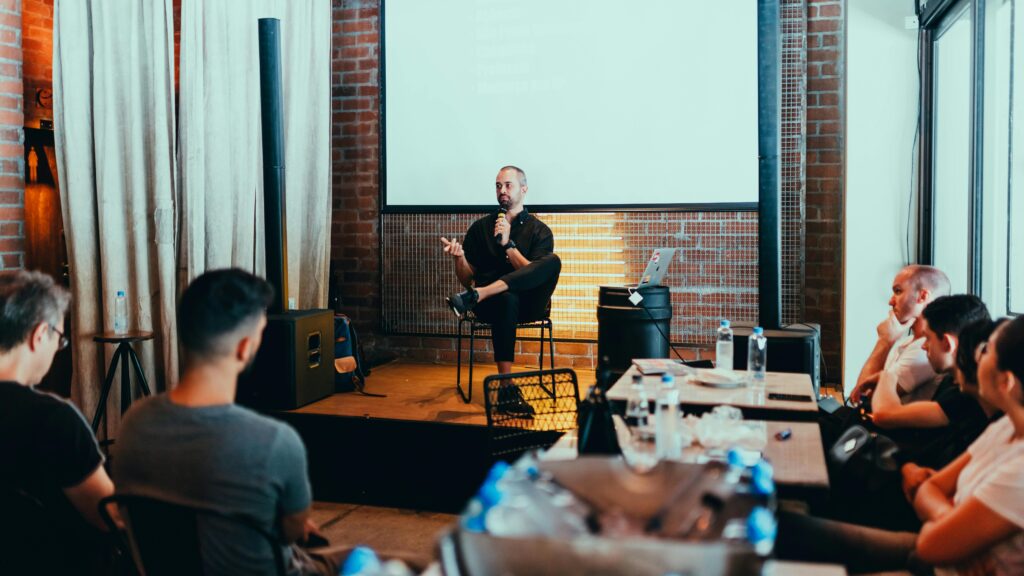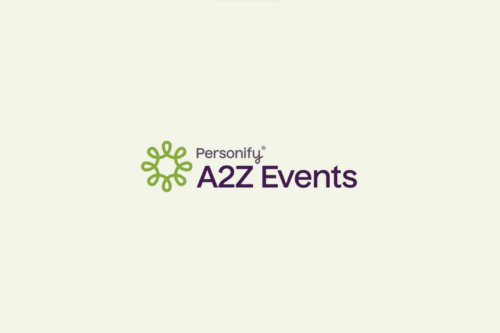When planning your event, one of the most important details you will need to navigate is selecting the right speakers. Having the optimal names featured on your landing page and event promotional materials can help you increase your audience size and build interest in what you have planned. A quality speaker will also keep your audience engaged and get them excited.
However, finding speakers for an event can quickly feel like an obstacle. You want to hire speakers that will appeal to your audience, fit in your budget, and have an interest in coming to your event. Fortunately, we have some guidelines to help you navigate this crucial step in the planning process.
Understanding Your Audience
Since you want a speaker who will appeal and engage your target audience, understanding your audience needs to be the first step in your process.
Importance of Audience Insights
The better you understand the interests and needs of your audience, the easier it will be to find a speaker that appeals to them. This calls for you to go more in depth than noting their interest in your industry or other broad details. You want to understand what brings them to your event specifically and what they hope to gain by attending. Armed with this information, you can start to sort through different speaker options to find the potential fits that would align well with these priorities.
Gathering Audience Insights
To build your understanding of your audience insights, you have several different strategies at your disposal. Here are a few to get you started:
- Conduct surveys of your target event audience. Ask them about what they want to learn, what would make an event like yours interesting to them, and what types of speakers they believe offer them the most value.
- Look at your feedback forms from past events. What did people say about the speakers who were previously included? What did they appreciate, and what did they wish was different?
- How do your target participants engage online? Do they have common voices or personalities they follow?
Bring together the information you gather from these methods, along with insight you already have about their demographics and industries, to start to build a target profile of your audience and the types of speakers that they would want to hear from.
Define Your Event Goals

Next, you want to consider what you want to accomplish with your event. If you want to target brand reach and reputation, for example, you may select different speakers than if you want to close deals.
Clear Objectives for Speaker Selection
Outlining your goals can help you define what you want your keynote speaker to achieve during the event. Some speakers might do an excellent job of motivating and inspiring audience members, while others work better in an atmosphere focused on education.
Knowing your goals will not only help you search for speakers but will also help you connect with your potential speakers. When you open the conversation with them about the event, it will help you articulate what you want to see from them so you can mutually decide if they will fit the role well.
Key Questions to Consider
To determine the target objectives of your event, we recommend you and your planning team ask each other some key questions to guide your decision-making process:
- What is the purpose of this event? What does the business want to achieve? What KPIs will matter most in your post-event evaluation?
- What themes are relevant to our event? What type of atmosphere do you want to create for attendees?
- What types of goals have you had for past events and how well did they advance overall business objectives?
- What inspired your team to start planning the event?
Answering these questions can help you start to identify your target goals to further your planning process.
Utilize Networking and Recommendations
As you identify the types of speakers you want to have at your event, it is time to start building a list of potential names that would fit your criteria.
Leverage Your Professional Network
Start by leveraging your professional network to find potential speaking candidates. You might look at places such as groups or platforms dedicated to your industry or ask others in the field if they have any speakers they would recommend.
Seek Trusted Sources
You can also reach out for suggestions from other professionals who might have valuable insight to offer. Some groups, such as speakers bureaus, can serve as an excellent resource for finding potential matches.
If you know others who plan events in related industries, you might also ask them directly if they have any recommendations for you to add to your list.
Research Potential Speakers

You have a variety of potential techniques you can use to research your potential speakers and further fill out your list of potential names.
Use Online Platforms
Start by looking on professional platforms like LinkedIn and SpeakerMatch. LinkedIn will help you see who people in your target audience follow and the recognizable names that apply to your audience. These platforms also give you a chance to see how potential speakers interact with people and the types of content they promote.
Review Past Speaking Engagements
Looking at information from past speaking engagements the person participated in can also provide valuable insight. You can see if social media contains information or testimonials about their performance. Speaker websites can also offer information about the types of events they presented at before and how well they were received.
Attend Industry Events and Conferences
Attending industry events and conferences yourself also gives you the chance to see potential speakers in action.
Discover Potential Speakers
When attending events, you might see potential speakers you had overlooked in your searches. Since you will be introduced to them during an event, you will have a great opportunity to see how well they align with your industry, goals, and theme.
Benefits of Observing Speakers
Observing potential speakers in action will give you a better idea of how they are in front of an audience. You will see their ability to engage people and keep them interested in their presentation. If you can find events that your speakers are already scheduled for, that can be a great way to finalize the names that you want to approach for a conversation about fees, schedules, and topics.
Consider Diversity and Inclusion
Building a list of diverse speakers for your event will help you achieve success in more ways than one.
Importance of Diverse Representation
Diverse representation helps your event reach a wider array of people and present more diverse and inclusive viewpoints. If all your speakers come from the same background, the chances are high that they will approach questions and information from the same perspective. Bringing in diverse speakers will help ensure your event touches upon a range of points of view. This helps your event interest and engage more people and create a richer learning environment for everyone in attendance.
Finding Diverse Speakers
Finding diverse speakers calls for you to start with diverse networks. If you have homogeneous networks, it becomes a challenge to find speakers representing different points of view.
Set goals to build diverse speaker itineraries and then work with your research team to find speakers that meet your goals. Expand your networks to include more diverse perspectives. Work with speakers bureaus and industry platforms to find speakers that represent different viewpoints.
After your event, include questions about your diversity efforts in your post-event surveys and ask your audience if they have any suggestions about how to improve. Take their suggestions into consideration as you plan future events.
Evaluate Speaker Fit and Expertise
Now that you have some idea about which speakers you would like to hire, you will want to carefully evaluate your options to make sure they fit your brand and event goals well.
Review Bios and Credentials
Start by looking closely at the speakers’ qualifications and background. Make sure they have the expertise needed to add value to your event topic. See if they have given any speeches related to the topic in the past and if you can get information on the highlights of their key points.
Conduct Pre-Event Discussions
We also recommend having a pre-event call or meeting to sit down with the speaker, discuss your upcoming event, and get their feedback about how well they align with your event objectives. This gives you an opportunity to learn more about their vision, style, and how they plan their speaking engagements. You can discuss your target audience with them to learn more about how they will prioritize this audience and create an engaging presentation.
This conversation helps avoid potential surprises, so you can feel confident putting this speaker on your event itinerary.
Budgeting for Speaker Fees

Once you find a potential speaker you would like to approach, you will need to think about how their fees will fit into your event budget and discuss these matters upfront.
Considerations Around Speaker Fees
As you approach potential speakers to learn more about their fees and negotiate, it is valuable to consider what their fees include and the potential ROI that the speaker can bring to your event. A highly recognizable name, for example, might cost more, but it might also bring in more attendees. Some speakers might also include features, such as Q&A sessions, that can add further value to your event.
To increase the budget-friendliness of potential speakers, you might consider strategies such as:
- Looking for local speakers to reduce travel and lodging fees
- Selecting speakers well ahead of time in hopes of securing discounts
- Consider in-house speakers. See if your business itself might have recognizable experts that you can add to the mix of speakers to fill out the schedule while also minimizing costs
Tips for Negotiating Fees
As you start to negotiate with potential speakers, it helps to have a few techniques available to help you reach mutually beneficial terms.
- See if you can provide more assistance with lodging and travel in exchange for a lower speaking rate.
- Ask if the speaker can include a Q&A session in addition to their speech.
- Try to negotiate terms well ahead of the event, before their speaking schedule gets filled up.
- See if your business can offer the speaker any services or exchanges that might help to lower their speaker fee.
Conclusion: How to Find Speakers for an Event
Finding the best possible speakers for your upcoming event calls for research and careful consideration. By defining your audience needs and your event goals and then using the tools at your disposal to find the best possible names, you will be able to negotiate with potential speakers and create an outstanding lineup.
When you have the best possible speakers, you will keep your audience interested and build excitement around your plans.
If you are getting ready to plan your next event, consider how you can apply these strategies to maximize your event success.







